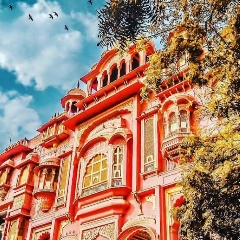Question 1 :
State True or False: Every quadratic equation has at most two roots.
Question 2 :
Justify why the following quadratic equation has no two distinct real roots: $x^2-3x+4=0$
Question 3 :
Does the following equation has the sum of its roots as 3? $\sqrt{2}x^2-\frac{3}{\sqrt{2}}x+1=0$
Question 4 :
Find the roots of the following quadratic equation by factorisation: $2x^2 – x + \frac{1}{8} = 0$
Question 6 :
Check whether the following is a quadratic equation: $(x – 3)(2x +1) = x(x + 5)$
Question 7 :
Justify why the following quadratic equation has two distinct real roots: $\left(x+1\right)\left(x-2\right)+x=0$
Question 8 :
State True or False whether the following quadratic equation has two distinct real roots: $\left(x+4\right)^2-8x=0$
Question 11 :
Find the nature of the roots of the quadratic equation $2x^2 – 4x + 3 = 0$.
Question 12 :
Using method of completing the square , $x^2+4x$ can be written as ?
Question 14 :
<img style='object-fit:contain' src='https://teachmint.storage.googleapis.com/question_assets/cbse_ncert/61b19b61273b23058497998e.png' />
In the centre of a rectangular lawn of dimensions $50m×40m$, a rectangular pond has to be constructed so that the area of the grass surrounding the pond would be 1184 $m^2$ in the above figure. Find the breadth of the pond.
Question 16 :
Find the roots of the following quadratic equation: $3x^2 – 4\sqrt{3}x + 4 = 0$.
Question 17 :
A quadratic equation $ax^2 + bx + c =0$ has two distinct real roots when :
Question 19 :
Using method of completing the square , solve for x: $2x^2-5x+3=0$
Question 20 :
State True or False whether the following quadratic equation has two distinct real roots: $x\left(1-x\right)-2=0$
Question 21 :
State True or False: If the coefficient of $x^2$ and the constant term have the same sign and if the coefficient of $x$ term is zero, then the quadratic equation has no real roots.
Question 22 :
Find the roots of the following quadratic equation (by the factorisation method): $2x^2+\frac{5}{3}x-2=0$
Question 26 :
Two water taps together can fill a tank in $9{\frac{3}{8}}$ hours. The tap of larger diameter takes 10 hours less than the smaller one to fill the tank separately. Find the time in which each tap can separately fill the tank.
Question 27 :
Using method of completing the square , $9x^2-15x+6=0$ can be written as ?
Question 28 :
A cottage industry produces a certain number of toys in a day. The cost of production of each toy (in rupees) was found to be 55 minus the number of toys produced in a day. On a particular day, the total cost of production was Rs. 750. Find out the number of toys produced on that day.
Question 29 :
Check whether the following is quadratic equation : $x^3 - 4x^2 - x + 1 = (x-2)^3$
Question 30 :
Find the values of k for each of the following quadratic equations, so that they have two equal roots: $kx (x – 2) + 6 = 0$













































